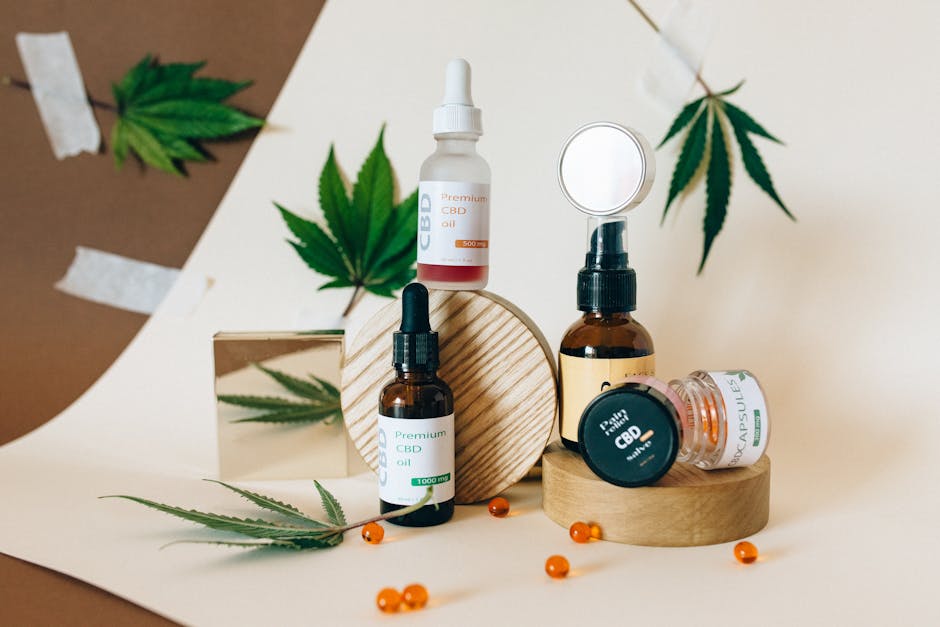The Skin-Deep Connection: How Culture Shapes Global Skincare
Skincare and beauty routines are not merely personal choices; they’re cultural legacies that reflect our shared values, rituals, and the wisdom of generations. As the world grows more connected, we find that the ingredients and techniques embedded in skincare practices are often steeped in rich traditions from cultures worldwide. This article delves into the fascinating intersection of culture and skincare formulations, showcasing how ancient practices inform modern beauty products. From traditional ingredients to unique applications, the global landscape of skincare reveals a vibrant tapestry of influence that enhances our beauty rituals.
The Rich Tapestry of Cultural Beauty Practices

From the rice water rinses in Japan to the clay masks of Morocco, skincare rituals not only beautify but also embody cultural heritage. These practices have been passed down through generations, each adding their unique touches and wisdom. With the demand for natural and effective skincare on the rise, many global brands are tapping into these rich traditions, integrating unique ingredients and methods that promise not just skin-deep results but also a connection to the earth and our ancestors.
Japan: The Power of Simplicity

Japanese skincare is often synonymous with simplicity and purity. The country's beauty regimens emphasize nourishment through gentle cleansing and the use of natural ingredients. For instance, the ritual of using rice water has been a staple for centuries, celebrated for its benefits in softening the skin and enhancing radiance. Cultivated from the essence of polished rice, it contains vitamins, minerals, and amino acids that work in harmony to promote healthy skin.
Alongside rice water, green tea is another hallmark of Japanese skincare, thanks to its high antioxidant content. Comprehensive studies have deemed green tea a beneficial ally against aging and sun damage. Modern brands like Shiseido have embraced traditional Japanese ingredients while innovating formulations that resonate with contemporary beauty standards. For more on the hidden gems of natural ingredients, check out this insightful blog.
Korean Skincare: A Masterclass in Layering

Korean beauty, or K-beauty, has taken the skincare world by storm, primarily through its well-documented 10-step skincare routine. Rooted in centuries of tradition, K-beauty prioritizes hydration and customized care, often layering serums, essences, and creams. Ingredients like snail mucin (believed to have regenerative properties) and ginseng (known for its anti-aging benefits) are classic examples of how Korea merges ancient wisdom with modern scientific advancements.
Brands such as Laneige have gained international acclaim for their innovative formulations that focus on the skin's moisture barrier. It’s this seamless blending of the old and the new that propels K-beauty to the forefront of a global skincare revolution.
Indigenous Practices: Nature's Wisdom

Globally, indigenous communities have contributed significantly to the beauty and skincare landscape. For instance, many Native American tribes have long used aloe vera not just for its hydrating benefits but also for its healing properties on wounds and burns. Traditional sister crops, like maize, are also integral to their beauty routines, often utilized in scrubs and masks.
On the other hand, Australian Aboriginal culture employs botanical ingredients like kakadu plum and tea tree oil, known for their immunity-boosting and anti-inflammatory characteristics. Companies such as Sydnee are beginning to incorporate these native ingredients into their formulations, offering a fresh perspective on what effective skincare can be.
The Mediterranean Influence: Olive Oil's Allure

In many Mediterranean cultures, olive oil is synonymous with beauty. The ancient Greeks and Romans used this nutrient-rich oil for skincare, believing not only in its moisturizing capabilities but also in its role as a beauty elixir. Its high levels of antioxidants and vitamins make it a timeless ingredient that heals and protects the skin.
Modern brands are re-embracing this tradition, creating products that combine the potent benefits of olive oil with contemporary formulations. The allure of Mediterranean skincare practices emphasizes simplicity—using high-quality, natural ingredients for effective results.
The Psychology of Beauty: Rituals and Emotions

In addition to cultural practices, the emotional connections we forge with our beauty routines can greatly affect their efficacy. Ritualistic practices often provide an enormous psychological boost that can enhance the overall experience of skincare. For more insight into how emotions shape skincare routines, explore this enlightening article.
The Aromatherapy Effect

Scent plays a pivotal role in skincare rituals. Scents like lavender and chamomile not only elevate the experience of a product but also can have calming, soothing effects on the skin and mind. Brands are beginning to explore the intersection of aromatherapy and skincare, enhancing the overall sensory appeal of their products. It's fascinating how scent drives our perceptions and can even influence product efficacy—check out this blog post for an in-depth analysis.
Mindfulness in Beauty Routines
Many beauty brands recognize the growing trend of incorporating mindfulness into skincare. Rituals that celebrate the process—whether it’s the sound of a calming frequency during application or the visual appeal of color therapy—help users connect with their routines on deeper levels. This mindful approach encourages users to take a moment of self-care amid hectic lifestyles, thereby enhancing the perceived effectivity of the products used.
Cultural Ingredients: A Global Inventory
To create a skincare product that resonates globally, beauty brands are harnessing a diverse array of traditional ingredients. Let’s explore some of these key contributions from various cultures.
Turmeric: The Golden Wonder
Originating from India, turmeric has been used in Ayurveda for thousands of years to reduce inflammation and treat various skin conditions. Its active ingredient, curcumin, has proved beneficial for reducing acne and pigmentation. Many modern brands have started to include turmeric in their formulations, recognizing its potential to boost skin health.
Aloe Vera: The Healing Powerhouse
Aloe vera is not only revered in many cultures globally for its soothing properties but is also used for its intense hydration. Perfect for all skin types, brands utilize this powerhouse in diverse formulations—from gels to creams, acknowledging its versatility and effectiveness.
Honey: Nature’s Moisturizer
In Egypt, honey was one of the key beauty ingredients used by Cleopatra. Known for its antibacterial and hydrating properties, honey is making a substantial return in many current beauty regimes. Its ability to lock in moisture continues to entice skincare enthusiasts, who appreciate its natural benefits.
Tea: The Versatility of Leaves
Tea, particularly green tea from Asia and rooibos from South Africa, has a growing presence in skincare formulations due to its antioxidant properties. These natural ingredients combat signs of aging and enhance skin health, proving that sometimes the simplest solutions are the most effective.
Case Studies: Global Brands Influencing Skincare
As the world becomes more interconnected, several beauty brands have emerged that authentically integrate cultural practices and ingredients into their product lines. Below are examples of innovative brands leading the charge.
Tata Harper: A Nod to Tradition
Tata Harper is a prime example of a brand that intertwines traditional practices with modern formulations. Using ingredients sourced from Ecuador and the French countryside, their products prioritize natural components without synthetic additives. This commitment to quality echoes historical wisdom while meeting today’s consumer needs.
Fenty Beauty: Inclusivity and Cultural Representation
Rihanna’s Fenty Beauty has changed the conversation around inclusivity in the beauty industry. Drawing from various cultures, the brand celebrates the uniqueness of individual beauty and delivers a broad shade range for all skin types. The brand highlights how merging cultural backgrounds in product development is not only beneficial but essential for broadening beauty's global narrative.
Dr. Hauschka: The Power of Biodynamics
Dr. Hauschka ties its formulations to biodynamic farming practices rooted in European traditions. By respecting natural ecosystems and promoting sustainability, the brand honors age-old agricultural wisdom while delivering modern skincare solutions. This relationship between ancient practices and innovative design showcases how brands can transcend mere beauty to cultivate a more sustainable future.
The Road Ahead: Innovation Meets Tradition
The future of skincare lies at the intersection of tradition and innovation. As new technologies and methods emerge, the beauty industry is positioned to embrace a diverse array of cultural practices. This commitment not only enhances the efficacy of skincare products but also fuels an ethical approach to sourcing and manufacturing.
Sustainable Practices and Future Formulations
As consumers become more mindful of their purchases, sustainable practices are shaping the future of skincare. By leveraging traditional wisdom alongside modern techniques, brands can create formulations that respect both people and the planet. The combination of eco-friendly packaging, ethical sourcing, and sustainable ingredient cultivation sets the stage for upcoming evolutions in the beauty space.
The Call for Inclusivity and Diversity
As the beauty movement continues to grow, the call for inclusivity is paramount. A recognition of cultural heritage – combined with diverse formulations – ensures a richer product experience for all. Brands that honor varied traditions and practices will undoubtedly resonate well in a global marketplace.
Final Thoughts: A Journey Beyond the Surface
Understanding the connection between culture and skincare not only allows us to appreciate the beauty rituals of others but also inspires us to explore our skincare journeys. The pursuit of healthy skin encompasses more than just products; it’s about fostering connections with nature, embracing tradition, and crafting individualized experiences.
As you refine your skincare routine, consider infusing elements from different cultures that resonate with you. Whether it’s using a time-honored ingredient like turmeric or embracing the simplicity of a gel-based routine, your path to radiant skin can be as diverse and colorful as the world around us.
Explore More
For those looking to further understand how skincare can be improved by reaching out to your environment and emotional state, be sure to check out this article on the microbiome of beauty. Exploring your self-care and ritual can enhance not only your skin health but also your holistic well-being.



